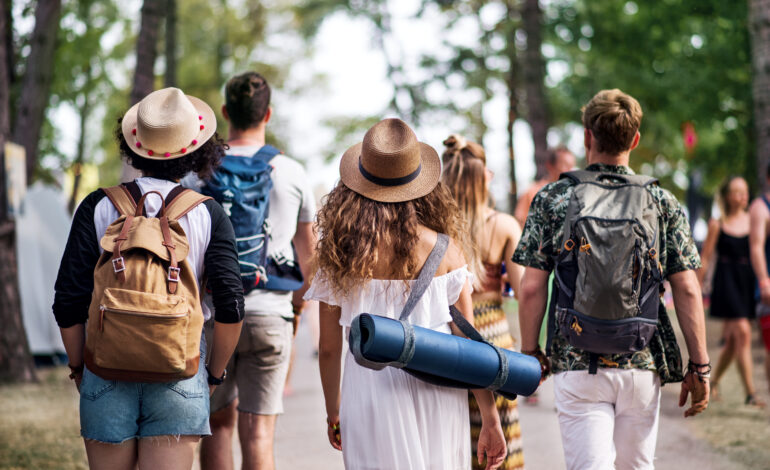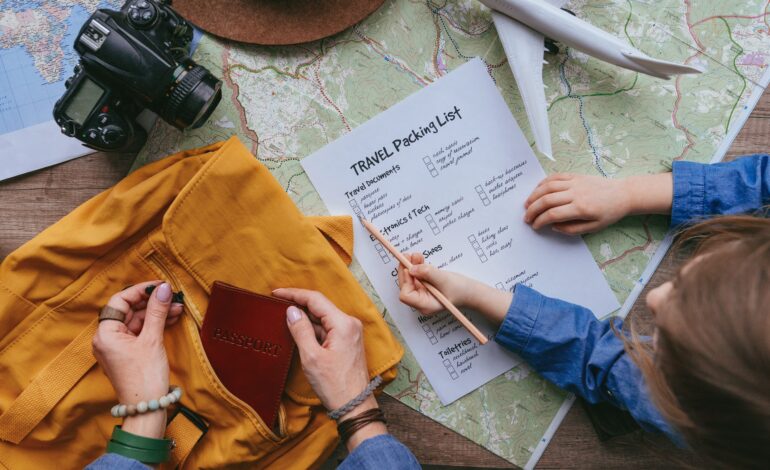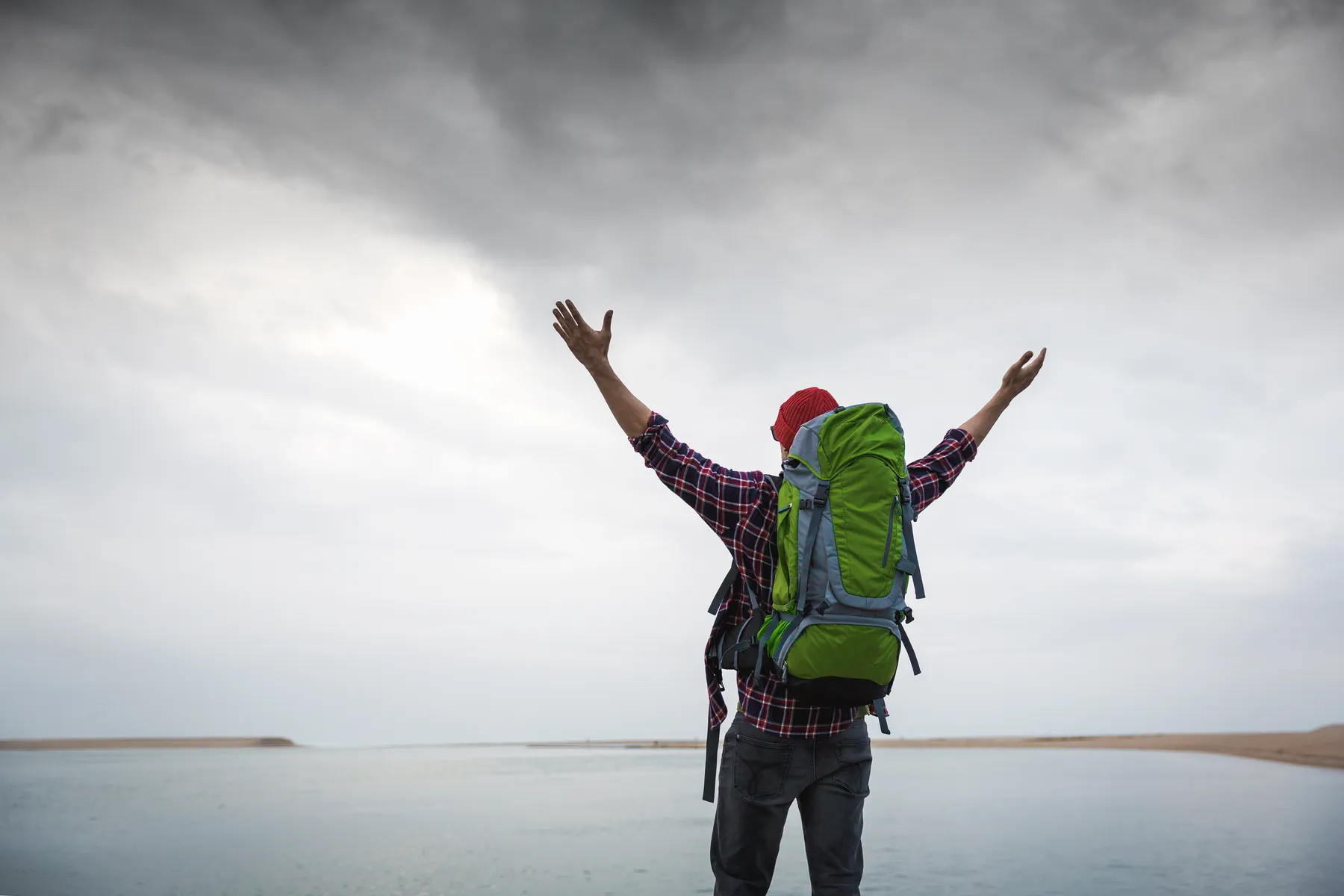Backpacking Group Trips: The Best Way to Experience the Outdoors with Friends

Introduction
Are you looking for an experience that makes you want to travel and make memories with friends you will never forget? A camping trip with a group might be the best thing for you! Going on backpacking group trips is one of the most incredible and exciting ways to see the woods. Going into the woods with a group allows everyone to try new things and strengthen connections.
Living off the grid in primary conditions also helps people grow as people. Whether you have never been on a camping trip before or are trying something new with more experienced friends, this activity has the potential to show you new ways to explore the outdoors. So do not worry, and join us on an unforgettable trip!
Benefits of Backpacking Group Trips
Compared to traveling by oneself, backpacking with a group of friends provides many advantages that are not attainable. The following is a list of some of the most convincing advantages:
Shared experiences
You share everything when you go backpacking as a group, from breathtaking sunsets to strenuous hikes. This is one of the many benefits of doing so. These times together cement relationships and build memories that will last a lifetime.
Division of responsibilities
Because you are traveling with a group, you can divide responsibilities such as cooking, setting up camp, and gathering supplies. This makes the journey more productive and allows each person to contribute skills.
Safety in numbers
Friends with you might provide additional comfort while venturing into uncharted territory or traversing rugged terrain. It is preferable to have many persons on whom you can rely in an emergency.
Learning from each other
When you travel with friends, you can share your knowledge and experience with them, which is beneficial whether you’re trying out a new activity or checking out a new location. Different methods of trekking, cooking, and even surviving can be learned from one another if people are willing to share their experiences.
Choosing Your Backpacking Group
One of the most crucial considerations when organizing a group backpacking trip is the people they will travel with. When selecting a group to go hiking with, here are some considerations to keep in mind:
Read more: How to Pack Your Travel Backpack Like a Pro: Tips for Women Travelers
Similar fitness levels
Regarding the members of the group’s physical capabilities, you should ensure everyone is on the same page. Everybody must keep up with the journey’s fast pace and challenging terrain.
Compatibility
When going on a trip with friends, the most important thing is to have fun together. Thus, it is important to pick people who can easily get along with you and share your passions and interests. A journey with a group of people who share similar interests will be more pleasurable.
Communication
Strong communication skills are necessary when going on a group backpacking trip. Ensure everyone has the exact expectations, plans, and protocols for dealing with emergencies.
Size of the group
How the camping trip goes will significantly depend on your group’s number of people. Larger groups may be safer and have more variety, but smaller groups make it easier to connect with others and work together. Choose the size of your group based on the type of experience you want to have.
Planning Tips for Group Backpacking Trips
Choose a destination that appeals to everyone in the group
When organizing a group backpacking trip, it is essential to consider the interests and preferences of all the people who will be participating. This will ensure that everyone has a meaningful experience and is thrilled about the vacation that they are going on.
Create a detailed itinerary.
A carefully planned itinerary can make all the difference in the success of a group vacation. In your description, include specifics like the daily miles, places to camp, and any potential risks or side trips.
Pack light and efficiently
When traveling by backpack, every ounce counts. Instruct each group member to bring only the necessary things and avoid overpacking. This will make hiking much simpler and more pleasurable for everyone.
Practice Leave No Trace principles.
Everyone must treat wildlife respectfully and leave it the way we found it. We must ensure that trash is thrown away correctly, that campfire effects are minimal, and that wildlife is avoided.
Stay flexible
A clear plan is helpful, but it’s also important to be flexible and willing to make changes. Bad weather or closed trails could force you to change your plans.
Preparing for Your Trip – What to Bring
It is critical to ensure that you have all the necessary equipment and supplies well before your group’s backpacking trip before you set out on your adventure. The following are some of the most important things to pack:
A sturdy and comfortable backpack
Your backpack will be your greatest buddy on the trail. Therefore, it is essential to purchase a high-quality model that is comfortable to wear and evenly distributes the weight of its contents.
Proper hiking boots or shoes
A backpacking trip can only be considered successful with appropriate footwear. Be sure to select a pair of hiking boots or shoes that are comfortable, long-lasting, and fit for the landscape.
Lightweight and compact sleeping bag
A night spent under the stars in the vast outdoors can be an unforgettable adventure, but only if you get enough rest beforehand. Make an investment in a sleeping bag that is not only lightweight and compact but will also keep you warm and comfy all through the night.
Nutrition-packed snacks and meals
Because backpacking entails physical work, carrying sufficient quantities of high-energy meals and snacks is essential to keep you going throughout the day. Choose lightweight options like dried meals or energy bars rather than carrying bulky or perishable goods.
Navigation tools
It is essential to have a map, compass, and GPS device (if one is available) to successfully traverse the trails and verify that you are heading in the proper direction.
First aid kit
When going on a backpacking trip, it is essential to be prepared for any emergency by bringing a first aid kit containing necessities such as bandages, pain medications, and stitches.
Appropriate clothing layers
Because the weather in the wilderness is often challenging to predict, it is essential to pack multiple layers of clothes that may be quickly put on or taken off in response to shifts in the ambient temperature. Additionally, rain gear is necessary if showers appear out of the blue.
Insect repellent and sunscreen
Pack insect repellent and sunscreen to shield your skin from the sun’s potentially damaging rays and ward off bothersome pests. Apply additional layers whenever necessary for the best possible defense.
Water purification system
It’s essential to stay hydrated when hiking, so remember to bring a water-purifying device, such as a filtration pump or purification tablets. This will allow you to drink from natural sources without risk.
Emergency equipment
It is essential to have various tools, including a signaling mirror, a whistle, and some kind of emergency shelter (like a bivy bag) stashed away in your backpack in case of an unexpected disaster.
On the Trail – Tips for a Smooth Group Backpacking Experience
Communicate openly and regularly.
As was stated earlier, effective communication is essential while traveling in a group using backpacks. Make it a habit to check in with one another regularly and talk about any problems or worries that may crop up.
Share responsibilities
When a group of people work together to complete a task, such as setting up camp, preparing meals, or purifying water, everyone benefits from the increased ease and productivity.
Respect each other’s space.
While it is necessary to form relationships with one another and spend time together as a group, it is also essential to respect personal space and make time for solitude. Be sure to convey any particular needs or preferences regarding the level of privacy desired.
Stay positive and be patient.
During a backpacking trip, things will only sometimes go according to plan; however, keeping a cheerful attitude and being patient with each other is essential. Remember that the purpose of everyone’s presence is to have a good time and take pleasure in the event.
Practice proper trail etiquette.
Follow the trail regulations, leave no trace behind, and give way to other hikers out of respect for the natural environment and your fellow hikers.
Document your trip
To ensure that the memories of your group’s backpacking trip are not lost, document it in some way by taking pictures, writing in a journal, or making a movie. This will not only help to keep the incredible event fresh in your mind, but it will also allow you to recount it to others.
In Case of an Emergency – Be Prepared
Develop an emergency plan.
Ensure you and the other group members discuss and formulate a contingency plan before you leave on vacation. This can include predetermined meeting places, people to call in an emergency, and protocols for getting help.
Carry a satellite phone or emergency beacon.
Multiple communication methods are essential if you get stuck in a remote place without cell service. You should bring a satellite phone or an emergency beacon that can send out distress messages in an emergency.
Know basic first aid and survival skills.
It is essential to ensure that one is always well-prepared for every circumstance that one may face. Attend a course in basic first aid and learn important survival skills such as how to construct a shelter, light a fire, and find your way around without using any tools.
Don’t panic
In a crisis, it is critical to maintain composure and carefully evaluate the situation before taking any action. Try not to freak out because doing so can frequently make the situation even more dire; instead, think clearly and maintain your concentration.
Always prioritize safety
In any emergency, the safety of you and the others in your group should be your top priority. Adhere to the appropriate safety measures and always put the health and safety of others first when making judgments.
Making Camp Life Fun & Comfortable – How to Enjoy the Great Outdoors
Explore your surroundings
Take advantage of the breathtaking natural landscape surrounding you by going on short hikes, swimming in nearby lakes or rivers, and simply taking in the sights and sounds of the natural world. Your journey will be more interesting, and you will enjoy the natural environment more.
Bring games and activities.
When going camping, bring along some entertaining activities for everyone, such as a deck of cards, a frisbee, or a portable board game. You may also organize group activities for everyone, such as a scavenger hunt or telling stories around the campfire.
Set up camp efficiently.
Ensure that the area you select for camp is adequate and level, and then ask everyone to work together as a team to set up the tents and any other essential equipment rapidly. This will free up more time for relaxing and enjoyable activities.
Use campfire responsibly
Building a campfire may be a fun addition to any camping trip if permitted. Before leaving the area or going to bed, ensure that all fire safety standards have been followed, that specified fire rings have been used, and that the fire has been extinguished.
Stay clean and organized.
Keeping your spot clean and well-organized makes it more pleasant and helps keep you safer. Ensure you throw away trash, store food correctly, and keep your items in order.
Take care of yourself.
Even though you should enjoy the trip and have fun, remember to take care of your body and mind. Rest, eat well, and pay attention to your body if it tells you it needs a break from things. Remember that the goal is for everyone to have a good time.
Wrapping Up Your Trip – Leave No Trace Behind
Pack out what you pack in.
Ensure that all trash is disposed of appropriately and that you leave the campsite in better condition than when you arrived. This involves picking up trash left behind by other people and disposing of waste items such as toilet paper appropriately.
Respect wildlife and nature.
To avoid damaging the natural world, it is important to study plants and animals from a safe distance and follow the paths that have been marked out for you.
Leave what you find.
Please do not bring anything into the woods with you, especially anything natural like rocks or plants, no matter how tempting it may be. These things should be left where they are since they benefit the ecology and should be found in their native habitat.
Reflect on your experience.
Before you travel back home, take some time to think about your experiences on your trip and the memories you formed with the people in your group. Talk about the highlights, the problems, and the things you’ve learned for your next trip.
Continue the spirit of adventure.
Keep the traveling spirit alive by planning more trips and staying in touch with your group after you return home. Take pictures, make plans for new trips, and keep enjoying the beauty of nature. Remember that the wild is always ready for you.
Conclusion
To conclude, a group hiking excursion may change lives by bringing people together, making them appreciate nature, and teaching survival skills. Successful trips need careful preparation, strong communication, mutual respect, and a positive mindset. Problems are inevitable, but they provide unique learning opportunities. Pack your bags, put on your boots, and go exploring. Be adventurous and friendly to the environment, and create lifelong memories!









